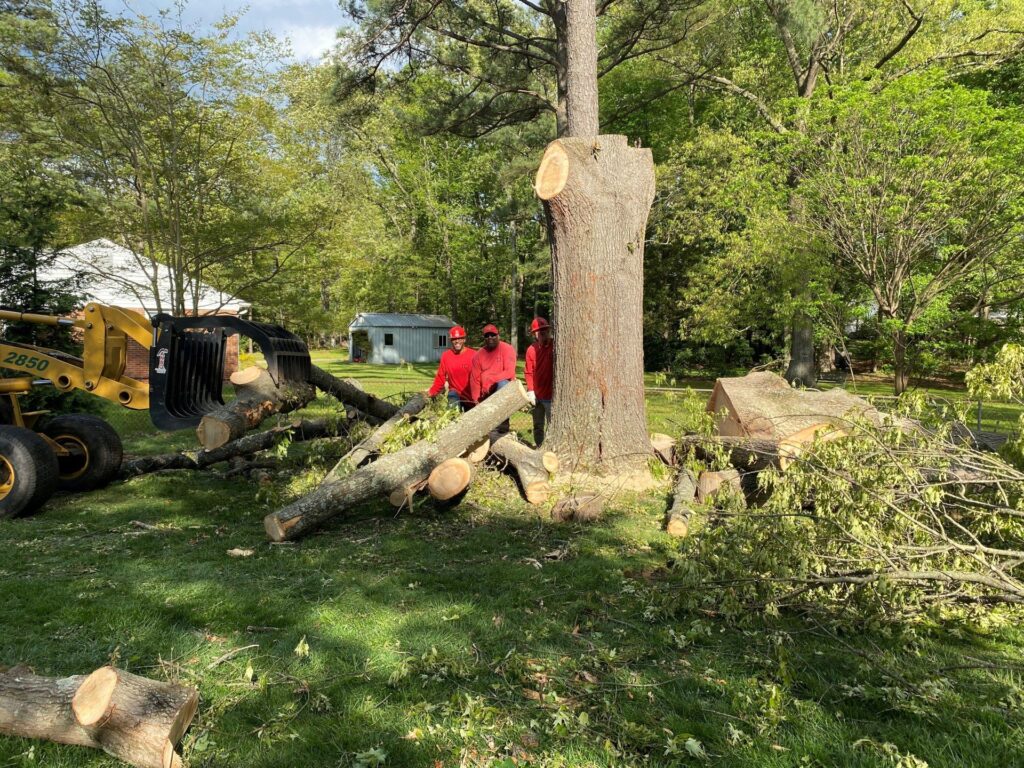How one can Pick the Right Arborist for Your Tree Maintenance Needs
Regarding maintaining the well-being and beauty of your trees, choosing the ideal arborist is crucial. With their specialized knowledge and skills, certified arborists are ready to handle a wide range of tree care needs, from pruning and illness identification to tree dismantling and hazard evaluations. Nonetheless, not all tree care professionals are equal, and understanding the specific role of an arborist can make a noticeable difference in the care that your trees get.
Whether you are managing a storm-damaged tree, seeking to enhance your landscape, or merely hoping to ensure your trees thrive, hiring a qualified arborist can provide confidence. In this article, we will examine the key factors to consider when hiring an arborist, what to expect during the tree care process, and the many ways a knowledgeable arborist can support you with the needs of your trees. Understanding these factors will not only help you make a more informed decision but also promote the ongoing health of the trees you care for.
Significance of Hiring a Qualified Tree Care Specialist
When it comes to caring for the health and appearance of your trees, selecting a licensed arborist is essential. Qualified arborists have gone through comprehensive education in plant care and are informed about plant biology, wood health, and appropriate pruning techniques. This expertise affords that your trees receive the highest possible care, enhancing their development and life span. By collaborating with a professional, you can prevent common blunders that might cause harm or disease.
Another significant asset of engaging a qualified arborist is their focus to security. Tree care can be hazardous, particularly when operating at elevations or managing heavy tools. Tree care specialists are trained in industry best practices to lessen risks to themselves and your property. They are supplied with proper protective equipment and have the expertise necessary to execute complex jobs, such as removing trees or pruning, without causing harm.
Finally, licensed tree care specialists can provide important advice and suggestions that go beyond fundamental tree care. They can diagnose tree diseases, identify threats, and offer personalized solutions to maintain or enhance the condition of your plants. This comprehensive method not only affords the well-being of your trees but also adds value to your land. By investing in a licensed tree care specialist, you are making a thoughtful move for both prompt and sustained arboricultural needs.
Signs That Suggest One Require the Arborist
If you observe signs of decline in your trees, it might be necessary to consult a arborist. Watch for indicators such as drooping leaves, discoloration, or abnormal leaf drop. Such changes can signal stress due to environmental factors or disease. Moreover, if you see dieback, in which the tips of branches are dead, this might indicate underlying issues needing professional assessment.
A further clear sign is the presence of pests. When you notice insects on your trees or unusual webbing, it is crucial to seek help from a arborist. They can correctly identify the pests and recommend treatments to avert further damage. Ignoring these signs can lead to more severe tree health problems and even loss of the tree.
Finally, should you be concerned about the structural integrity of your trees, such as leaning trunks or apparent cracks in branches, you should reach out to a arborist. They can conduct a risk assessment and determine if the tree poses any danger to your property or surrounding area. Early intervention can be crucial in preventing potential hazards and ensuring the safety of the landscape.
Critical Aspects To Consider Selecting an Arborist
As you choosing an arborist, the initial factor should be their certification and qualifications. Certified arborists have gone through extensive training and assessments to ensure they carry the knowledge needed for effective tree care. Look for certifications from accredited organizations, as this demonstrates a dedication to adhering to best practices and practices. In addition, inquire about their experience and any specific expertise they may have related to the specific tree care tasks you need, whether it's clipping, disease diagnosis, or evaluating tree risk.
Another crucial factor is the arborist's credibility and references. Check online ratings, testimonials, and seek references from previous clients. A trustworthy arborist should be willing to provide you with details about their past work and client contentment. Additionally, consider their approach to tree care—do they focus on health and sustainability, and are they knowledgeable about the latest approaches? This can influence not only the short-term care of your trees but also their future health and stability.
To wrap up, assess the communication and consultation process. A good arborist should be able to articulate their methods, discuss your concerns, and understand your goals for your trees. https://yamcode.com/ should provide clear quotes and timelines for their work. Clear communication helps foster a trusting relationship, ensuring that your tree care needs are met effectively. Choose an arborist who takes the time to pay attention and teach you about your trees and the best practices for their care.
